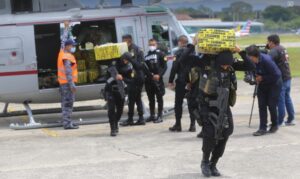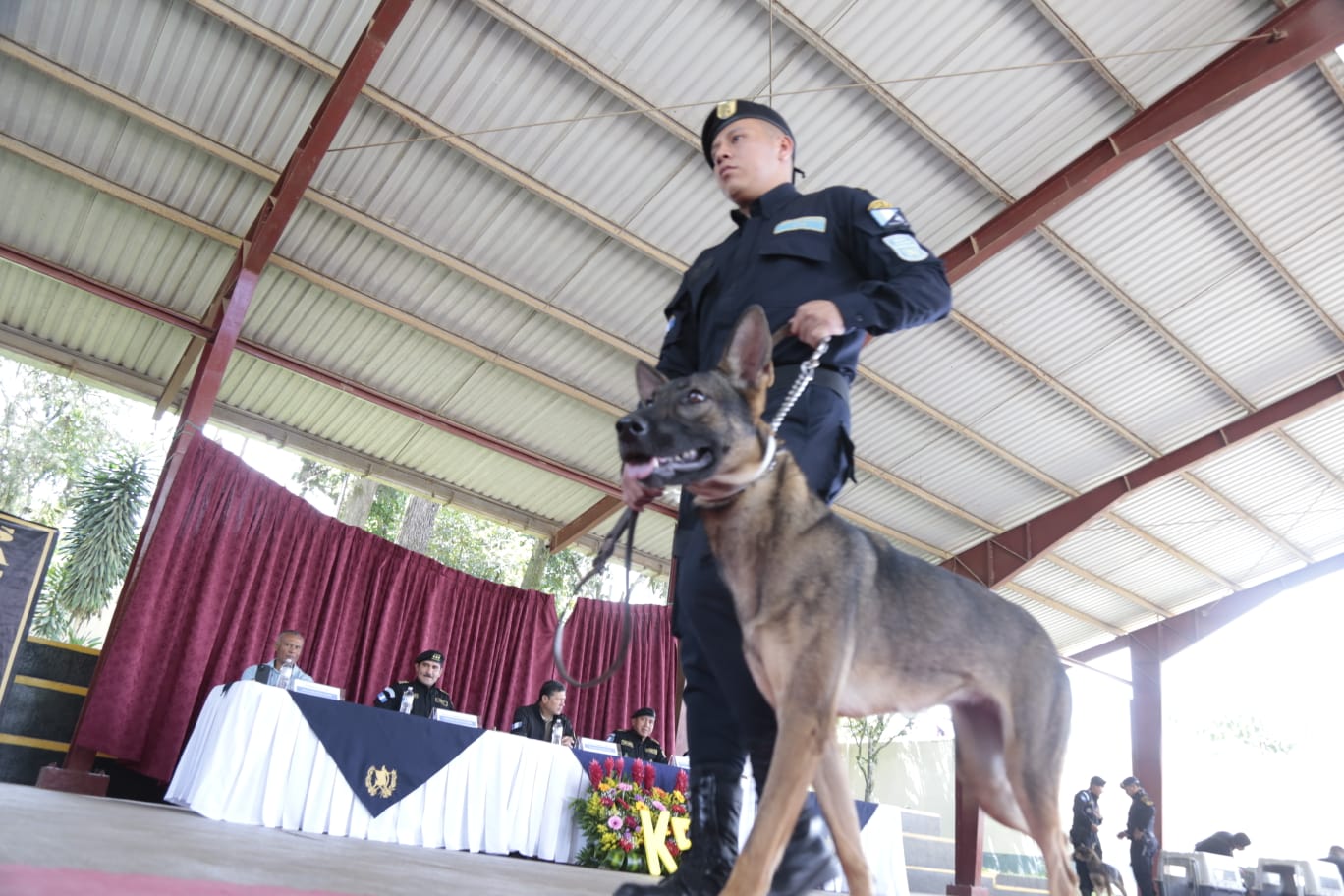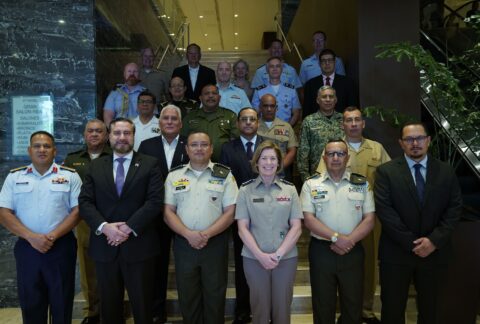The U.S. government donated 22 canines to the Guatemalan National Civil Police (PNC), which will be trained to combat narcotrafficking and organized crime, the Guatemalan Ministry of Government (MINGOB) said in a press release.
“For the PNC this donation represents a strong point to continue fighting the narcotrafficking and transnational crime phenomena that affect the region, and to deliver results such as seizing drugs, locating people who are carrying out these types of illegal actions, and having them face the courts,” Jorge Aguilar, spokesperson for the Guatemalan Ministry of the Interior, told Diálogo on October 13.
According to MINGOB, the U.S. Embassy, through the Bureau of International Narcotics and Law Enforcement Affairs (INL), delivered the Belgian Malinois and German Shepherd dogs to the Central American Canine Training School in Barberena, Santa Rosa.
The dogs will be trained for three months to detect drugs, electronic devices, paper currency, weapons, and explosives. After being certified as K-9 units, the dogs will be handed over to carry out field work, the MINGOB statement indicated.
These dogs will join 41 active dogs. In November, Guatemala is expected to receive 18 more dogs, for a total of 81 K-9 that will make up the police forces’ Canine Unit. This unit accounts for more than 70 percent of narcotics seizures, the U.S. Embassy said via Twitter on September 30.
“The dogs will be deployed nationwide, specifically at ports and airports, but also in different areas of the country,” the Embassy added. “We are talking about the border points between Guatemala with El Salvador and Honduras and Guatemala with Mexico.”
Advances

Guatemala’s criminal organizations are among the most sophisticated and dangerous in Central America. They are involved in marijuana, coca, and poppy cultivation, as well as human trafficking, kidnapping, extortion, money laundering, arms smuggling, and environmental crimes. They also often work with criminal groups from Mexico and Colombia, InSight Crime, an international organization that investigates organized crime in Latin America and the Caribbean, reported.
According to MINGOB figures, from January 1 to August 31, 2022, Guatemalan security forces seized more than 1,545 kilograms of cocaine. In addition, they confiscated more than 9 million poppy plants, 244 vehicles, aircraft, firearms, ammunition, and five clandestine drug processing laboratories.
“Cooperation in the fight against narcotrafficking between the Guatemalan police and the U.S. is also progressing,” Aguilar said. “In 2021 alone, 57 people with arrest warrants for extradition to the U.S. were brought before the courts. In 2022, there were 36.”
Scientific laboratory
“In addition to the donation of the K-9 units, another way the U.S. government supports the PNC is with training,” Aguilar added. “But also with vehicle donations and other circumstances that strengthen this process at all times.”
As part of this commitment, the United States is supporting the construction of a scientific laboratory to protect evidence in the custody of the PNC’s Subdirectorate General for Analysis of Anti-narcotics Information in San José de Golfo, MINGOB said.
On July 27, the INL Bureau at the U.S. Embassy in Guatemala delivered a mobile canine unit to the PNC’s Weapons and Explosives Investigation and Disposal Division to transport dogs belonging to the K-9 binomials that detect weapons and explosives, MINGOB added.
“The cooperation or training that the Guatemalan Police receives from the United States in the medium and long term is very important. The police’s continuous training contributes to successful operations […], direct blows have been dealt to narcotrafficking. This fight against narcotrafficking is not over,” Aguilar said.









